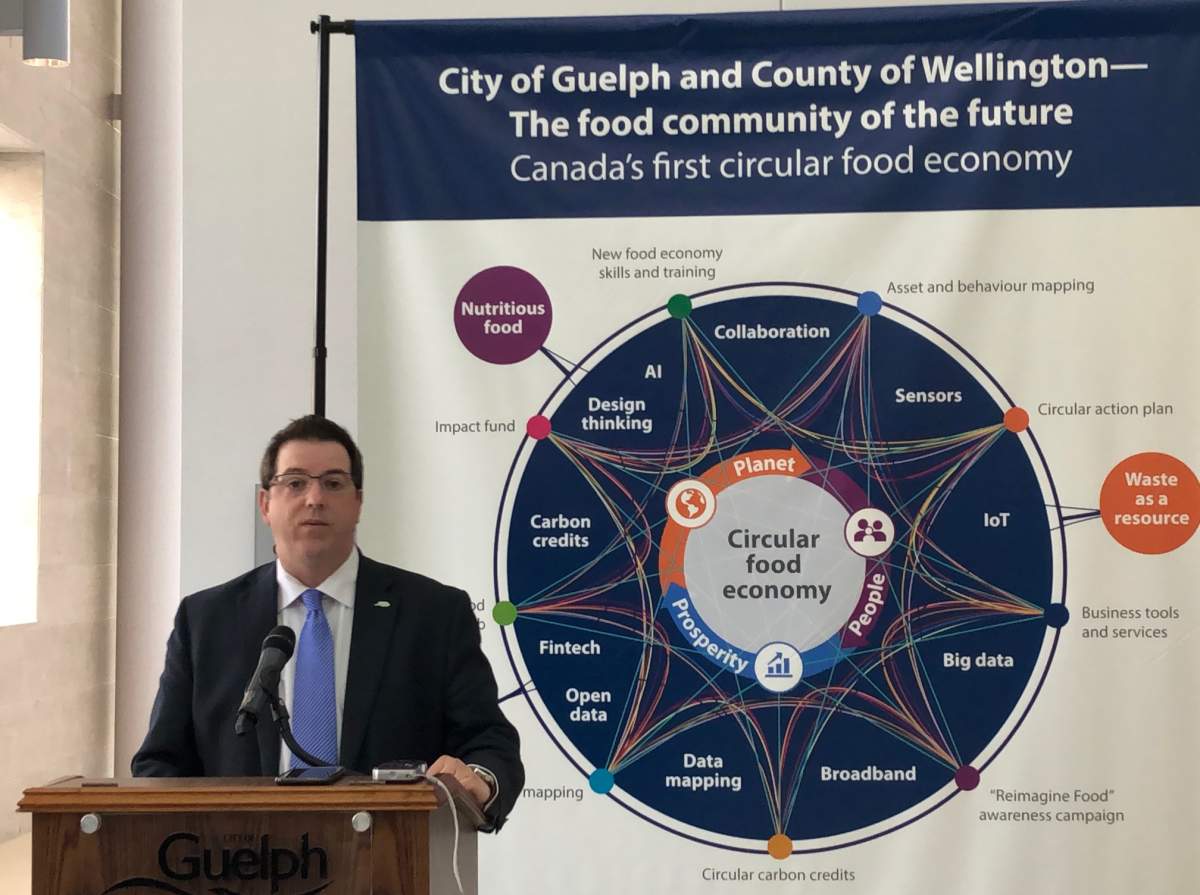The city of Guelph and Wellington County‘s food sector could be the ticket to landing a $10-million prize in the federal government’s Smart Cities Challenge.

As part of the competition, communities across Canada were tasked with identifying a social problem and to propose a new and innovative way of solving it.
On Friday it was announced that Guelph and Wellington County have submitted a joint bid and plan to create what’s being called a “circular food economy.”
The city said it would be the first of its kind in Canada.
“This is a profound rethinking and a profound vision of how food gets from the farm to the plate and then back again,” said Guelph Mayor Cam Guthrie at a news conference at city hall.
“The circular food economy is a more efficient, equitable, environmentally sustainable and economically sound model for our food system.”
The application to the Smart Cities challenge proposes to increase access to local, affordable and healthy food by 50 per cent by 2025.

Get daily National news
There is also a significant emphasis on repurposing and reusing food waste that would otherwise be disposed of.
Another goal involves creating 50 new businesses and collaborations by 2025 that would follow this model.
Wellington County Warden Dennis Lever pointed to the farmland in the community as to why the joint bid is the best way forward.
“Wellington County is home to 2,511 farms — the highest number of farms in southwestern Ontario,” he said. “Of the farmland in Wellington County, 75 per cent is Class 1, 2 or 3, which is the best and highest quality of farmland.”
“Our strength is agriculture and food, and through the Smart Cities Challenge, we hope to make a difference on a national and even global scale.”
The hope is that the model will serve as a roadmap for other communities across Canada and the world.
The finalists for the Smart Cities Challenge will be announced later this year and receive $250,000 to come up with a business plan.
The winner will be announced in 2019.
The city said dozens of local businesses, academics, not-for-profits and civic organizations participated in the creation of the proposal.
- Danielle Smith becomes first Alberta premier in 90 years to face citizen recall
- Alberta legislature passes bill invoking Charter override for 4th time
- Carney protegé eyed to succeed Hillman as Canada’s U.S. ambassador: sources
- Trump’s security strategy won’t meddle in Canada’s affairs, Hoekstra says








Comments